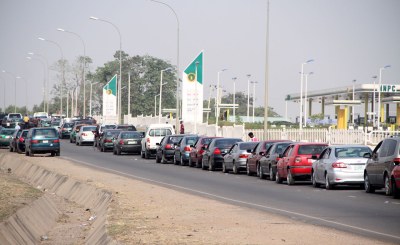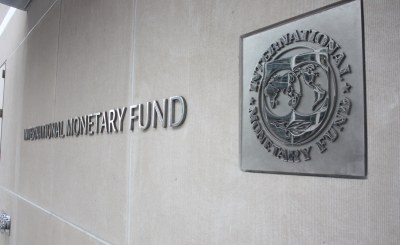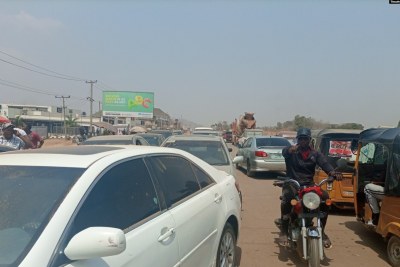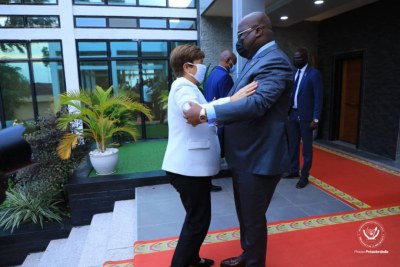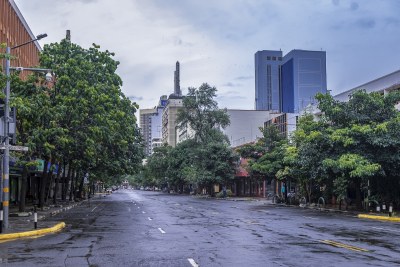-
Africa: 87% of IMF Loans Forcing Austerity on Crisis-Ravaged Nations: Analysis
Common Dreams, 19 April 2022
"This epitomizes the IMF's double standard: It is warning rich countries against austerity while forcing poorer ones into it." Read more »
-
Oxfam, 19 April 2022
87 percent of the International Monetary Fund's (IMF) COVID-19 loans are requiring developing countries that have been denied equal access to vaccines and are facing some of the… Read more »
-
IMF, 19 April 2022
Thank you, Secretary Yellen, for your focus on growing food insecurity and to Assistant Secretary Latortue for moderating today's discussion. Read more »
-
Africa: IMF Executive Board Approves Establishment of the Resilience and Sustainability Trust
IMF, 18 April 2022
Challenges from the pandemic, spillovers from geopolitical shocks, and long-standing structural problems pose an enormous impediment for balance of payments stability and resilient… Read more »
-
Africa: High Cost of Debt Is Crippling Developing Nations - How Can We Bridge the Finance Divide?
IPS, 18 April 2022
As the world is rocked by a confluence of crises, the global economic outlook for 2022 is becoming ever more uncertain and fragile. Prospects for sustainable development for all… Read more »
IMF Loans Force Austerity on Nations in Crisis - Oxfam Report
The conditions of nearly 90% of the International Monetary Fund's pandemic-related loans are forcing developing nations suffering some of the world's worst humanitarian crises to implement austerity measures that fuel further impoverishment and inequality, according to an analysis published by Oxfam International. Oxfam found that "13 out of the 15 IMF loan programs negotiated during the second year of the pandemic require new austerity measures such as taxes on food and fuel or spending cuts that could put vital public services at risk." Nabil Abdo, Oxfam International's Senior Policy Advisor, said: "This epitomizes the IMF's double standard: it is warning rich countries against austerity while forcing poorer ones into it."
Examples of the loans include a U.S.$2.3 billion agreement between Kenya and the IMF which includes a three-year public sector pay freeze and increased taxes on cooking gas and food. Nine countries including Cameroon and Senegal are required to introduce or increase the collection of value-added taxes, which often apply to everyday products like food and clothing, and fall disproportionately on people living in poverty. And Sudan, where nearly half of the population is living in poverty, has been required to scrap fuel subsidies which will hit the poorest hardest.
InFocus
-
African economies, already battling to recover from a Covid-induced recession, face major obstacles as they manage "spillover" effects from the war in Ukraine, IMF Managing ... Read more »
-
International Monetary Fund Managing Director Kristalina Georgieva visited Democratic Republic of Congo and Senegal in December, where she met with the current and upcoming ... Read more »
-
The IMF's six-monthly economic outlook for the Sub-Saharan region, shows that the economies will begin to recover from last year's Covid-19 shock and grow again in 2021. But a ... Read more »
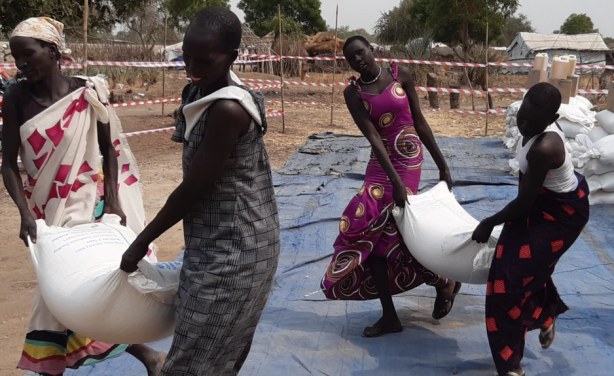
Displaced people in Bor, South Sudan, collect food aid. The conflict in Ukraine and resulting sanctions on Russia are driving up global oil and food prices, which could lead to increased hunger in Africa, analysts say.
